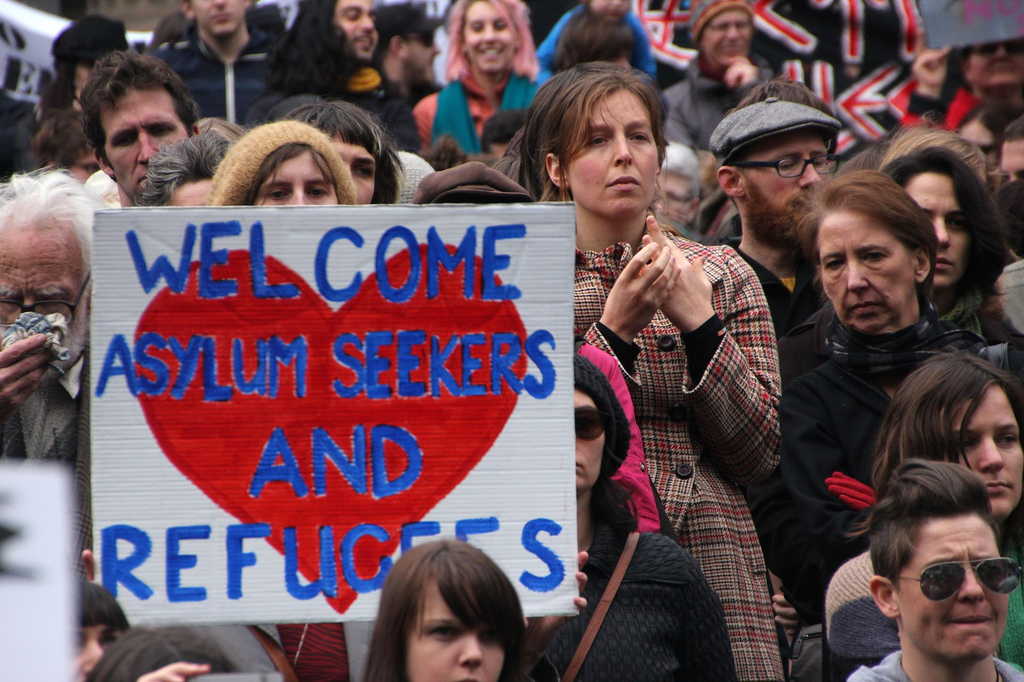1.2 million asylum applications were registered in 2015 in the EU. It seems a lot, yet if we consider the whole picture, more than 300 thousand applications were filed this summer. It is only about 600 petitions per million Europeans.
Is it possible to assess economic impact of this phenomenon in Europe? After all, it’s quite hard to differentiate between genuine refugees and economic migrants.
After arrival of asylum seekers, the first host country shall bear cost of processing their applications, providing them with food, shelter, medical care and education. Thus, this country increases aggregate demand and financial expenses as well as income of indigenous workers, and volume of sold goods and services. This reduces pressure on wages and inflation later, when asylum seekers finally enter the labor market. Depending on the existing rules in different countries, it may take up to 2 years.
By the time they have the right to start looking for a job, migrants tend to be inferior in their capabilities to local workers. The key to reduce this gap is to promote employment: migrants can be settled close to their work and offered courses and trainings, and labor market can be more flexible. Successful economic integration can contribute to fiscal sustainability of the host country, as well as potential resolution of demographic problems.
This summer, 60% of asylum seekers came from war-devastated Syria, Afghanistan and Iraq. Many of them ended up in Greece, Hungary, Italy, France. However, every 6 out of 10 migrants arrived in Germany, where the open-door policy has both its supporters and opponents.
According to experts, reception of refugees in Germany will cost to 10 billion euros this year. By 2020, this figure will increase to 20 billion. For these needs, the government has allocated 6 billion over next two years - that is, more than half of the required amount. To reduce costs, the authorities intend to make the reception of refugees’ policy more effective.
"We need to achieve this by selecting most successful programs and initiatives, which bring better results - said a representative of employers' associations Stefan Cooper. - We need to develop, implement and expand them."
This is the key to economic integration of refugees who, as a rule, are in the working age, despite the fact that population of Germany is one of the most rapidly aging in the world.
As reported by the Frankfurter Allgemeine Zeitung in early July, 30 leading German companies from the top sheet of the Frankfurt Stock Exchange hired a total of 54 refugees, while 50 of them took a job at Deutsche Post.
July 2, The Wall Street Journal reported that the German Ministry of Finance expects to spend € 77.6 billion (approximately $ 86.2 billion) over the next four years on welfare, housing and education of refugees, as well as render assistance to the countries from which they come, to stop the flow. According to the plan, € 24 billion will be spent to cover social benefits to be provided to migrants after obtaining asylum.
source: euronews.com
Is it possible to assess economic impact of this phenomenon in Europe? After all, it’s quite hard to differentiate between genuine refugees and economic migrants.
After arrival of asylum seekers, the first host country shall bear cost of processing their applications, providing them with food, shelter, medical care and education. Thus, this country increases aggregate demand and financial expenses as well as income of indigenous workers, and volume of sold goods and services. This reduces pressure on wages and inflation later, when asylum seekers finally enter the labor market. Depending on the existing rules in different countries, it may take up to 2 years.
By the time they have the right to start looking for a job, migrants tend to be inferior in their capabilities to local workers. The key to reduce this gap is to promote employment: migrants can be settled close to their work and offered courses and trainings, and labor market can be more flexible. Successful economic integration can contribute to fiscal sustainability of the host country, as well as potential resolution of demographic problems.
This summer, 60% of asylum seekers came from war-devastated Syria, Afghanistan and Iraq. Many of them ended up in Greece, Hungary, Italy, France. However, every 6 out of 10 migrants arrived in Germany, where the open-door policy has both its supporters and opponents.
According to experts, reception of refugees in Germany will cost to 10 billion euros this year. By 2020, this figure will increase to 20 billion. For these needs, the government has allocated 6 billion over next two years - that is, more than half of the required amount. To reduce costs, the authorities intend to make the reception of refugees’ policy more effective.
"We need to achieve this by selecting most successful programs and initiatives, which bring better results - said a representative of employers' associations Stefan Cooper. - We need to develop, implement and expand them."
This is the key to economic integration of refugees who, as a rule, are in the working age, despite the fact that population of Germany is one of the most rapidly aging in the world.
As reported by the Frankfurter Allgemeine Zeitung in early July, 30 leading German companies from the top sheet of the Frankfurt Stock Exchange hired a total of 54 refugees, while 50 of them took a job at Deutsche Post.
July 2, The Wall Street Journal reported that the German Ministry of Finance expects to spend € 77.6 billion (approximately $ 86.2 billion) over the next four years on welfare, housing and education of refugees, as well as render assistance to the countries from which they come, to stop the flow. According to the plan, € 24 billion will be spent to cover social benefits to be provided to migrants after obtaining asylum.
source: euronews.com





